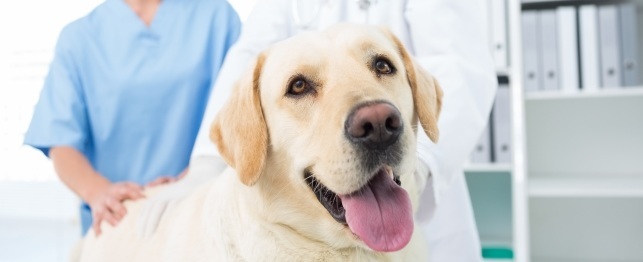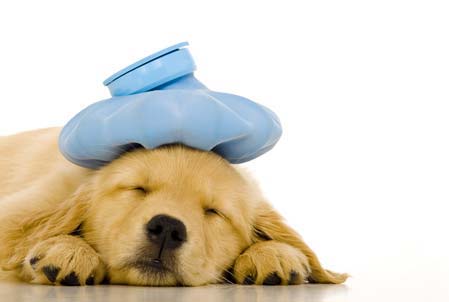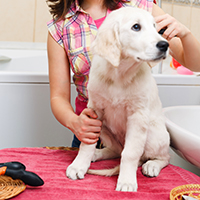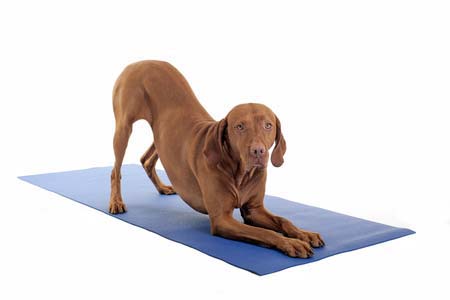

Dogs
Does your dog dart out of reach as soon as she sees the pet carrier or leash? Does she cry, whine and shake when you turn into the parking lot to the veterinarian's office?
These are the common reactions when pets know a veterinary visit is coming. Somehow, dogs always seem to know.
You may have noticed that your dog isn't always crazy about the vet's office. A variety of circumstances can provoke these anxieties. Some pets may have had a frightening experience there, or they associate the visit with an unpleasant procedure such as a nail clipping. A dog may feel fearful or protective of his owner in the presence of other dogs or become unsettled at the smell of unfamiliar cleaners, medicine, and the scent of other agitated animals. Whatever the reason, a trip to the doctor's office for your pet can be a stressful and anxious event.
The stressful components to the vet visit for some dogs include the following:
Every dog is different, and many of the tips below are for pets that are more stressed about these visits. Some dogs love other animals and the attention from humans, so they may not need as much (or any) assistance. Use the tips below as they apply to your dog and your situation. I hope they make that dreaded visit safer and more pleasant for you, your dog, and the veterinary staff!
As you go through the process of taking your dog to the vet clinic, stay calm. Your dog also reacts to your stress levels, so don’t speak loudly or yell at your dog no matter what your dog does. Speak peacefully and softly or remain quiet.
Take any health history and records from other clinics to your appointment. Don’t forget to write down any questions you may have to ensure they are answered when you talk to the doctor.
If your dog is going to require bloodwork, withhold food the morning of your appointment or as directed by your veterinarian. If your vet requires a urine sample, you may want to restrict your dog’s access outside for a few hours beforehand.
If your vet's office is close, taking a brisk walk for exercise past the office door and making a quick visit for a treat and petting will help make the office a nonthreatening place. Your dog may even have a gender preference and do better with either a female or male doctor. If that is the case, the veterinary practice can help accommodate you by scheduling you with the doctor your pet loves best.
 Aging Dogs
He's been your loving companion
Aging Dogs
He's been your loving companion
 The Glamorous Shih Tzu Coat, From Top Knot to Tail
When seen floating across the show
The Glamorous Shih Tzu Coat, From Top Knot to Tail
When seen floating across the show
 Shedding Light on Shedding
Dogs Shed for a Variety of Reasons
Shedding Light on Shedding
Dogs Shed for a Variety of Reasons
 Common Household Hazards For Dogs
Dogs have an inquisitive nature. It
Common Household Hazards For Dogs
Dogs have an inquisitive nature. It
 Breed Improvements: Old Problems and New Solutions
There is a general movement within
Breed Improvements: Old Problems and New Solutions
There is a general movement within
Copyright © 2005-2016 Pet Information All Rights Reserved
Contact us: www162date@outlook.com